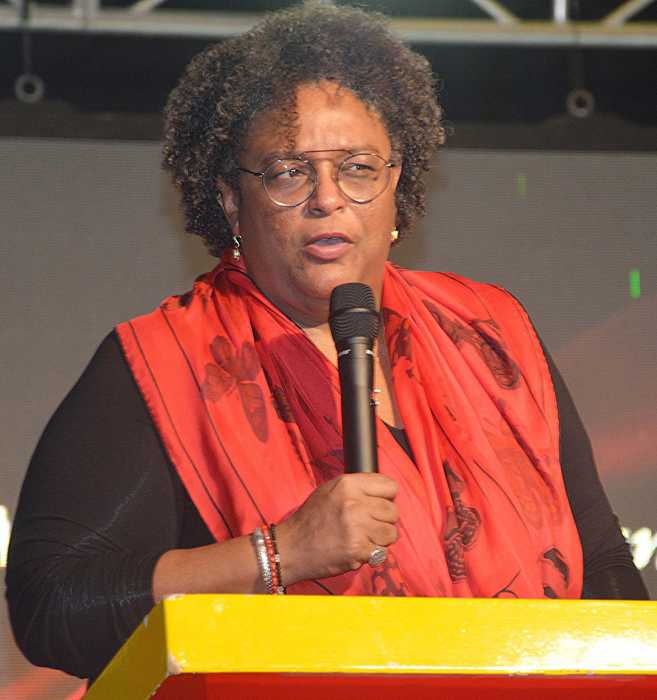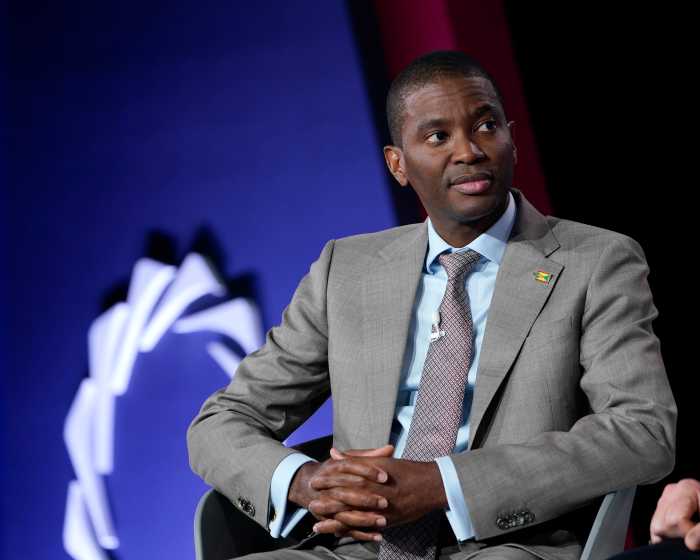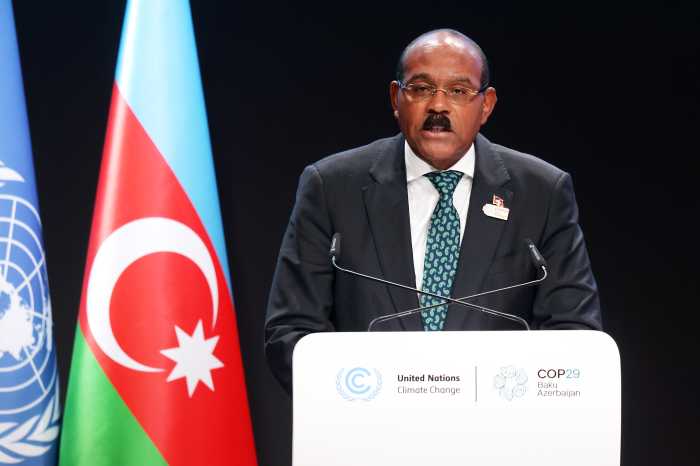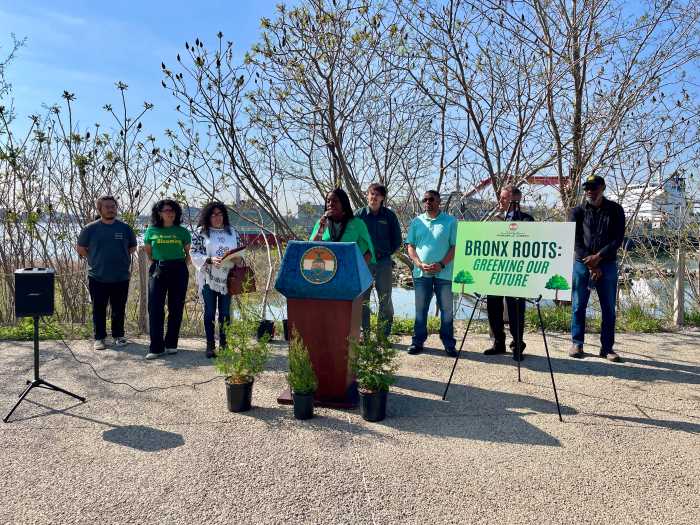ANTIGUA
Prime Minister Gaston Browne has defended his government’s policy to enforce the recently announced vaccine mandate affecting the private sector, indicating that he will meet this week to decide on the fines to be imposed for businesses failing to adhere to the policy.
The government has said that the private sector businesses with five or more employees must ensure that all staff members are vaccinated and fines could be imposed should they fail to adhere to the new policy.
Browne told the nation on his weekend radio program “Antigua and Barbuda is actually within pole position in the Caribbean in so far as vaccinations are concerned. Now within the private sector we would have introduced some mandates recently and I believe they become effective shortly as well.”
He acknowledged that there may be some employers “who would not be moving with alacrity to ensure that the staff is vaccinated.”
BARBADOS
The Barbados government has welcomed the support shown by citizens to the island’s Optional Savings Scheme (BOSS), the cash-for-bonds initiative for public servants, pensioners and private companies.
Minister in the Ministry of Finance, Ryan Straughn told Parliament that there has been a strong support to the initiative just over a year after its introduction and that, up to Sept. 30, public sector workers held about 18 million of the BOSS bonds while pensioners accounted for an estimated eight million.
BOSS, which took effect in July 2020, allows public servants to agree to have a portion of their converted bonds over an 18-month period. It also applies to pensioners. Companies and the wider public were also able to buy the bonds from public servants through the Central Bank or a broker.
Under the scheme which is aimed at raising over Bds$150 million up to January next year to help capital projects, bond holders will get a five percent interest rate that is payable twice a year. The bonds will mature after four years.
CARIBBEAN
As several Caribbean countries battle their highest COVID-19 infections and deaths rate, the Pan American Health Organization (PAHO) says 29 percent of the CARICOM population is at a higher risk of developing severe strains of the disease.
It is as a consequence of these Caribbean citizens having at least one underlying health conditions.
At the PAHO’s recent press briefing in the Americas, Incident Manager for COVID-19, Dr. Sylvain Aldighieri said the data shows that comorbidities are a factor associated with severity.
He said based on studies, PAHO knows that 22 percent or approximately 145 million people in Latin America and the Caribbean have underlying health conditions.
“Regarding the Caribbean countries that are part of the Caribbean Community, CARICOM, where we have observed the highest prevalence of cardiovascular diseases, including hypertension, diabetes mellitus and chronic kidney diseases, the estimation of the Pan American Health Organization, in collaboration with the London School of Hygiene and Tropical Medicine, is that we have up to 29 percent of the population with at least one underlying condition, therefore, being at risk for severe COVID-19,” he said
GUYANA
The Guyana government is pursuing the development of a deep water harbor in the Atlantic Ocean to accommodate large vessels, a project once completed will also benefit other South American countries including Suriname, Brazil and possibly French Guiana.
President Irfaan Ali told reporters during a recent virtual press conference “it’s a project across the borders we have started discussion with both Brazil and Suriname and all three countries are fully committed.”
Noting its importance to doing business, Ali said the government is looking to fund the project through private sector investment with commitments from the United Arab Emirates (UAE) to help.
Ali said Abu Dhabi is looking at leading the studies to come up with a technical evaluation and then financial evaluation.
The president, who recently held discussions with investors in Dubai and other parts of the Middle East and also discussions with the management of Khalifa Port, said there is strong support for the project.
Khalifa Port is a deep water project in Abu Dhabi, capital of UAE.
JAMAICA
The Jamaica Constabulary Force (JCF) said there had been more than 1,200 murders in just over 10 months of this year, significantly higher than the same period last year.
Figures recently released by the JFC, showed that there were 1,215 killings from Jan. 1 to Nov. 6, compared to 1,01 during the corresponding period in 2020, an increased or 10.4 percent.
The St. Andrew South Police Division continues to lead in murders so far this year, with 144 cases or 20 more cases when compared to 124 murders recorded for the corresponding period last year.
The JFC said the number of shootings island-wide rose marginally by 0.6 percent with the figures showing there were 1,081 shootings, six more than last year.
The police are recording declines in cases of rapes, robberies and break-ins for the same period last year.
The JFC said that the number of serious and violent crimes so far this year has declined by 8.7 percent, with a total of 4,031 when compared to 4,415 last year.
St. LUCIA
St. Lucia Prime Minister, Phillip J Pierre joined his Caribbean (CARICOM) colleagues in urging the international community to meet its commitment to helping Small Island Developing States (SIDS) like those in the Caribbean deal with climate change.
Addressing the recent United Nations Climate Conference (COP 26) in Scotland, Glasgow, Pierre, one of the recently elected heads of government in t
he CARICOM region, said even as the global community continues to battle the COVID-19 pandemic, the presence of so many world leaders “is testimony to our recognition that we are at a critical juncture, a tipping point.”
Pierre said that the SIDS, like his island, St. Lucia, whose special circumstances and needs were settled in Paris in 2015, are in the midst of a crisis for humanity.
TRINIDAD
Trinidad and Tobago recorded a whopping 781 new COVID-19 cases, the highest figure reported in a single day. Until now, the highest daily reported figure was 708 on May 21 from samples taken over a seven-day period.
Epidemiologist Dr. Avery Hinds warned that the country could begin seeing near 1,000 new cases of COVID-19 being recorded each day.
Over a five-day period a week ago, close to 2,000 new cases had been reported. The death toll has been closing in to 2, 000 since the pandemic first broke out in March last year — more than 200 people have died of the virus in the two weeks of this month.
Tobago has recorded close to 400 active cases.
Health officials fear that now the state of emergency and curfew have been removed there could be a greater surge in positive cases.
In a 24-hour period last week-end, T&T experienced the deadliest day of the COVID-19 pandemic to date, with a record 28 new deaths.
Last Wednesday PM Dr. Keith Rowley got Parliament to approve the lifting the State of Emergency — two weeks before it was officially due to end.
Dr. Rowley said that the government was stopping the SoE because it has been accepted that while rising numbers of infections would come as the economy is opened up and more people are moving around, it is hoped those persons infected are vaccinated persons who would not require hospital care.
— Compiled by Azad Ali


























